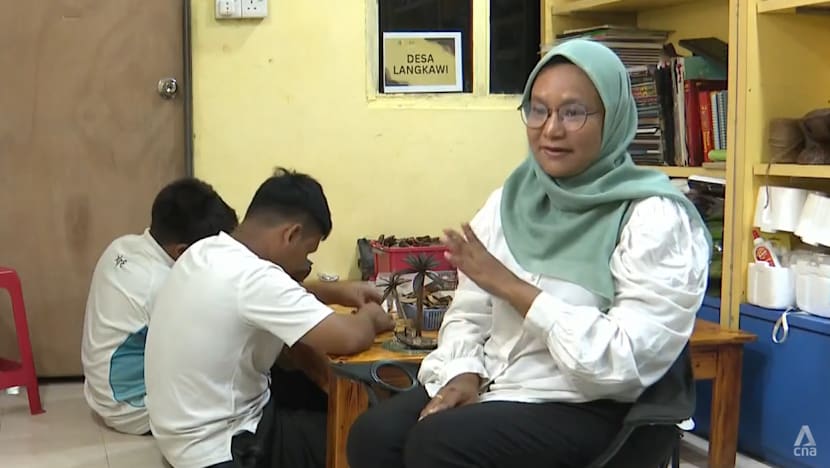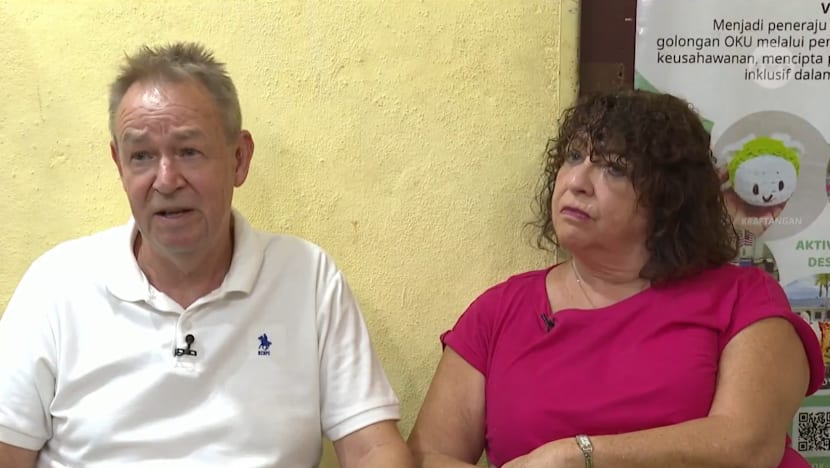‘You go back feeling great’: Volunteer tourism taking off across Southeast Asia
While voluntourism has faced criticism in some regions, experts said when done ethically, it can benefit both the host communities and visitors.

Madam Surina Pison, 43, owns a Langkawi-based social enterprise aimed at empowering children with special needs in her village.

This audio is generated by an AI tool.
LANGKAWI, Malaysia: Once regarded as a niche travel trend, voluntourism – which combines travel with meaningful volunteering work – is steadily gaining traction in Southeast Asia.
From environmental conservation projects in Thailand to community-based initiatives in Indonesia and Malaysia, the concept is being reshaped to emphasise sustainability, inclusion and mutual learning.
In Malaysia, the tourism sector has been actively promoting more inclusive and sustainable offerings that highlight the value of voluntourism.
On the island of Langkawi, one woman’s story is inspiring change on both a local and regional scale.
“WE NEED TO CHANGE OURSELVES”
Surina Pison, affectionately known as Chik Su (or Aunty Su in English), is the founder of DESA – a Langkawi-based social enterprise aimed at empowering children with special needs in her village.
The 43-year-old was motivated by her own journey as a mother to two autistic children, who are now young entrepreneurs.
Together, they run workshops and skills training for other special needs children – inviting visiting tourists to join in the learning.
“We need to change ourselves. This is what I always insist (for) my children,” Surina told CNA. “If we want people to notice us, first we need to show them our skills.”
Her eldest daughter now has a spa and wellness certificate, while her teenage son is skillful in arts and crafts, including wood carving.
But their path has not been without hurdles. Surina said she used to face discrimination and criticism from those who accused her of child exploitation.
"Sometimes people say these children are too young, why must they go through such training?” she recalled.
“But if we (their parents) die tomorrow, who will teach them? So for us, only skills and knowledge are going to help them survive in this world."
DESA counts itself as an example of how voluntourism can offer more than just photo opportunities or feel-good moments – it aims to spark real, long-term empowerment.
Surina said she wants to share her experience with women across Southeast Asia who face similar challenges.
“Regardless (of) which country you are from, you develop your own tourism products,” she added. “(And), for special needs children around the world – help them to shine.”
REWARDING EXPERIENCE
Some travellers told CNA they have found these opportunities deeply meaningful.
Australian retirees Tony and Janis Hughes, who visit Langkawi three times a year, became involved in local workshops and taught children in kampungs – or villages – how to sing.
“There're a lot of people (who) want a little bit more. They want to find out more about culture. They want to support local communities. They want to embrace the culture and understand a little bit more about how people live,” said Tony Hughes, who used to work as a music teacher.
“We've found the joy and the love of helping people, and we've been fortunate to go into the kampungs and see how people live real life,” added his wife, a former nursery nurse.
“It’s fantastic satisfaction.”
The couple even composed a song that was recently turned into a music video which aired on local television.

While voluntourism has faced criticism in some regions, including concerns over “orphanage tourism” in Cambodia or unskilled volunteers in construction projects, experts said that when done ethically, it can benefit both the host communities and visitors.
According to a 2019 United Nations tourism report, responsible voluntourism can promote sustainable development goals – particularly in education and gender equality.
BROADER PUSH FOR SUSTAINABLE TRAVEL
Across Malaysia, voluntourism has been welcomed as a way to entice tourists to stay longer, to return and to spend more.
Nigel Wong, president of the Malaysian Association of Tour and Travel Agents, said other groups have been bringing tourists in to teach and even help to build facilities.
“It's not just funding but literally putting your hands to the till. The best incentive there is – you go back feeling great,” he added.
Last year, Malaysia launched an environmental, social and governance (ESG) certification for hotels to promote sustainable tourism practices.
Industry players said member countries of the Association of Southeast Asian Nations (ASEAN) can also benefit from one another’s social enterprises by creating a regionally recognised ESG certification.
Faisol Abdullah, an adviser at SURI Langkawi, a social enterprise that recycles old bedsheets and linens donated by hotels into handcrafted souvenirs, believes ASEAN members can share more than tourism dollars.
“There's so much potential if we can share our culture together with everybody, (no matter) what religion or what culture we profess,” he added.


















